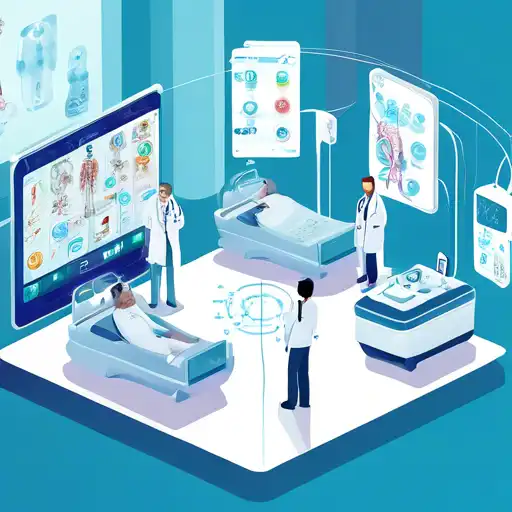Introduction to IoT in Healthcare
The integration of the Internet of Things (IoT) into healthcare is transforming the industry in unprecedented ways. By enabling real-time monitoring, improving patient care, and reducing costs, IoT technologies are indeed a game changer. This article explores the multifaceted impact of IoT in healthcare, highlighting its benefits, challenges, and future prospects.
The Benefits of IoT in Healthcare
IoT in healthcare offers numerous advantages, including enhanced patient monitoring, improved treatment outcomes, and operational efficiencies. Devices such as wearable fitness trackers and smart medical devices allow for continuous monitoring of patients' health, enabling early detection of potential health issues. Moreover, IoT facilitates remote patient monitoring, reducing the need for hospital visits and enabling healthcare providers to offer personalized care.
Enhanced Patient Care
With IoT, healthcare providers can monitor patients in real-time, ensuring timely interventions. This is particularly beneficial for chronic disease management and elderly care, where constant monitoring can significantly improve quality of life.
Operational Efficiency
IoT devices streamline hospital operations, from inventory management to patient flow optimization. This not only reduces operational costs but also improves the overall patient experience.
Challenges Facing IoT in Healthcare
Despite its benefits, the adoption of IoT in healthcare faces several challenges. Data security and privacy concerns are paramount, as the sensitive nature of health data makes it a prime target for cyberattacks. Additionally, the high cost of IoT devices and the need for robust infrastructure can hinder widespread adoption.
Data Security and Privacy
Protecting patient data is critical. Healthcare providers must implement stringent security measures to safeguard against breaches and ensure compliance with regulations such as HIPAA.
Infrastructure and Cost
The deployment of IoT solutions requires significant investment in technology and infrastructure, which may be a barrier for some healthcare providers.
The Future of IoT in Healthcare
The future of IoT in healthcare is bright, with advancements in technology paving the way for more innovative applications. From AI-powered diagnostics to blockchain for secure data sharing, the possibilities are endless. As the industry continues to evolve, IoT will play a pivotal role in shaping the future of healthcare.
Innovations on the Horizon
Emerging technologies such as 5G and edge computing are set to enhance the capabilities of IoT in healthcare, enabling faster data processing and improved connectivity.
The Role of Policy and Regulation
For IoT in healthcare to reach its full potential, supportive policies and regulations are essential. These will ensure that innovations are implemented responsibly, with patient safety and data security at the forefront.
In conclusion, IoT in healthcare is revolutionizing the industry, offering numerous benefits while also presenting challenges that need to be addressed. As technology continues to advance, the potential for IoT to improve patient care and operational efficiency is immense. The future of healthcare is here, and IoT is leading the charge.
